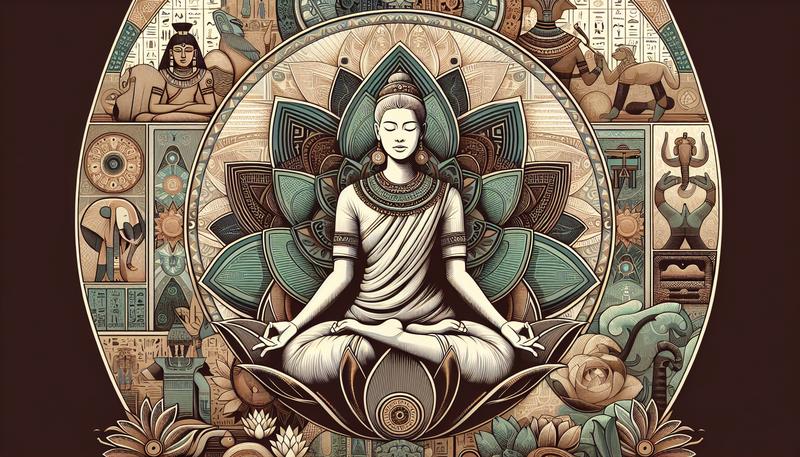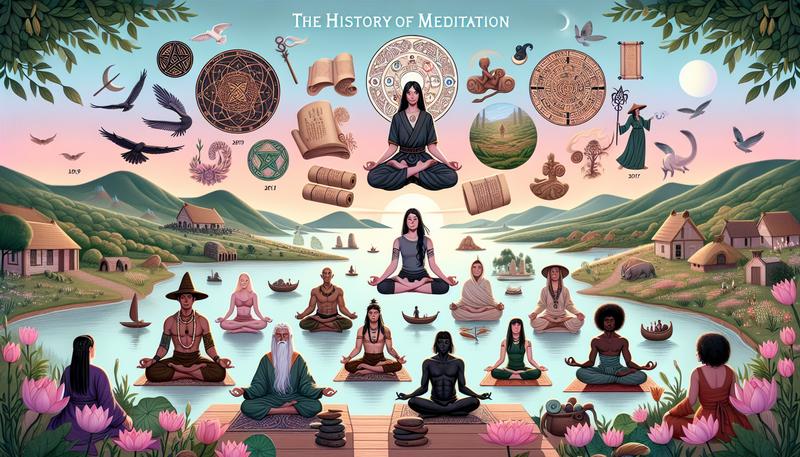The Rich History of Meditation: From Ancient Traditions to Modern Practices
Meditation is a time-honored practice that has rich roots in various cultures around the globe. It has evolved through the centuries, transforming from ancient spiritual rituals to modern wellness strategies. This blog post will explore the fascinating history of meditation and its spiritual significance in today’s world.
Ancient Beginnings
The origins of meditation can be traced back over 5,000 years, primarily in the traditions of Hinduism, Buddhism, and Taoism. In India, the Vedic texts describe techniques for meditation that focus on a deep connection to the self and the universe. Around the same time, in China, Daoist and Buddhist traditions embraced similar techniques, promoting inner peace and harmony with nature.
In ancient Egypt, priests practiced meditation as part of their spiritual rituals, believing it enhanced their connection to the divine. These early practices often included deep breathing, chanting, and visualization, foundational elements that are still utilized in meditation today.
The Spread of Meditation Across Cultures
As cultures began to intermingle, meditation practices spread to other areas. In the 6th century BCE, Siddhartha Gautama, who became known as the Buddha, developed a systematic approach to meditation, known as Vipassana. This method encouraged mindfulness and awareness of one’s thoughts and feelings, breaking the cycle of suffering through insight and clarity.
Meanwhile, the ancient Greeks also recognized the benefits of meditation. Philosophers like Plato and Socrates spoke about the importance of self-reflection and contemplation, demonstrating that meditation was not limited to Eastern traditions.

Meditation in the Modern Era
The 20th century saw a significant resurgence of interest in meditation. This was largely influenced by the counterculture movements of the 1960s, which sought alternatives to the materialism of Western society. Influential figures such as Maharishi Mahesh Yogi popularized Transcendental Meditation, appealing to a broader audience, including celebrities and artists.
Today, meditation continues to evolve, integrating elements of psychology and neuroscience. Research shows that regular meditation can reduce stress, improve emotional well-being, and enhance cognitive functioning. More recently, mindfulness meditation has become a popular practice in corporate settings, therapy, and self-care routines.
The Spiritual Significance of Meditation
Meditation serves as a bridge between the material and spiritual worlds. For Wiccans and many spiritual traditions, it provides a means to connect deeply with their inner self and the divine. It fosters a sense of peace and helps practitioners tap into their intuitive abilities.
If you are interested in exploring the healing aspects of nature in conjunction with meditation, you might find this article enlightening: The Rich History of Herbal Medicine: A Journey Through Time.
Meditation is not merely an escape from the hustle and bustle of modern life; it’s a spiritual practice that can cultivate greater awareness, compassion, and connection to the universe.
Closing Thoughts
As you explore meditation in your spiritual journey, consider its historical significance and how it can enrich your practice. Whether through ancient techniques or modern adaptations, meditation has the power to transform and heal.
Have you experienced the benefits of meditation in your own practices? We would love to hear your thoughts and stories in the comments below!



